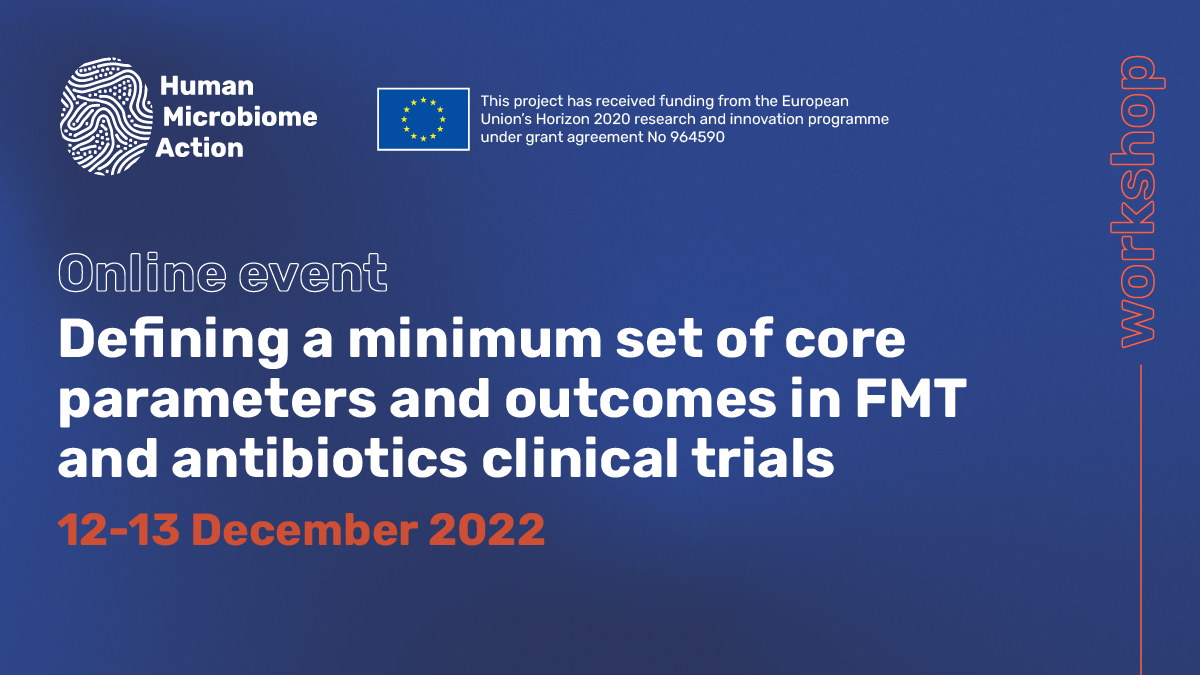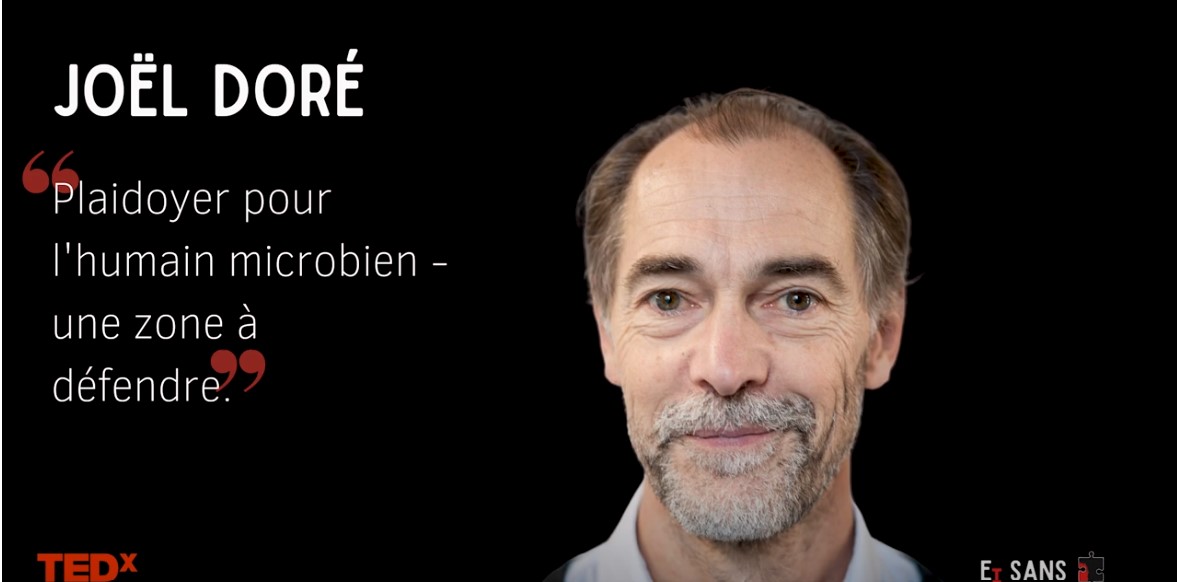Microbiome outcomes in clinical trials: a workshop
In a bid to enhance the comparability of clinical microbiome studies, a two-day online workshop was held on the 12th and 13th of December 2022 within the framework of the Horizon 2020 project “Human Microbiome Action” which aims to maximize the impact of European microbiome research and innovation to tackle the epidemics of chronic diseases.
The event “Defining a minimum set of core parameters and outcomes in FMT and antibiotics clinical trials” brought together 24 experts in the field from 8 Countries, including regulatory experts, researchers, and clinicians. The workshop primarily aimed to develop a draft for Delphi questionnaires focusing on outcomes in faecal microbiome transplant (FMT) clinical trials and clinical trials involving antibiotics.
To facilitate in-depth conversations, the participants were divided into two breakout rooms. In the first room, the experts delved into the core outcome sets of FMT studies. Simultaneously, in another room, the second group focused on core outcome sets related to antibiotics. During these breakout sessions, participants were given the opportunity to briefly introduce themselves, showcase their knowledge, and provide unbiased definitions of the respective topics.
With the contributions from the experts, the organizers gained a well-rounded understanding of the subject matter. The systematic reviews of clinical trials registered on clinicaltrials.gov were presented, and the results were extensively discussed. This exchange of ideas and perspectives fostered a comprehensive analysis of the current landscape, enabling the identification of gaps and potential areas for improvement.
During the second day, the experts were acquainted with the Delphi questionnaires protocol, specifically designed for FMT and antibiotic topics. In the subsequent session, the experts returned to the breakout rooms, once again splitting into groups to prepare a draft Delphi questionnaire based on the previous day’s discussions. This phase was an opportunity to identify aspects that had not been considered in the systematic review. The experts meticulously examined and added relevant questions to the questionnaire, ensuring comprehensive coverage of high and low biomass microbiomes and other vital considerations.
The second day concluded with a fruitful general discussion, where experts from both breakout rooms shared their thoughts and presented the drafts of the two Delphi questionnaires. The diverse perspectives and collective expertise enriched the questionnaire drafts, propelling them towards greater accuracy and applicability.
The draft questionnaires developed during the event hold potential for clinicians conducting clinical trials and pharmaceutical companies alike. By promoting standardization in clinical microbiome studies, these questionnaires aim to improve the comparability of study results, enabling more reliable conclusions and advancements in the field.
The results of this workshop mark a significant step forward in the quest for standardized clinical microbiome studies. With the potential to shape future research practices, the draft Delphi questionnaires hold promise in harmonizing outcomes across various clinical trials. As the field advances, the implementation of these standardized protocols will undoubtedly lead to more meaningful insights, benefiting patients, clinicians, and the scientific community at large.
What is a Delphi questionnaire?
The Delphi Survey technique is a powerful tool designed to extract expert opinions through a structured and iterative questionnaire process. It offers a flexible approach to gathering insights from across various domains. Participants can engage in the process via an online platform.
By employing an anonymous and iterative process, Delphi Surveys encourage participants to express their opinions freely without being influenced by others. As the survey progresses, the range of answers tends to narrow, allowing the group to converge toward a more refined and considered consensus, often seen as the “correct” answer.
The Delphi Survey technique operates through a series of stages, each designed to foster the gradual refinement and convergence of expert opinions:
- The initial questionnaire invites participants to individually identify pertinent issues and generate as much feedback as possible on the topic discussed, seeking their insights on specific developments within predetermined timeframes.
- In the second questionnaire, all ideas and feedback submitted during the first round are anonymously shared with all participants. This stage allows experts to refine their initial ideas, comment on their strengths and weaknesses, and propose new concepts, ensuring a more comprehensive exploration of the topic.
- This iterative process can be repeated multiple times until a consensus on key points emerges.
- The final product of the Delphi Survey technique may result in a consensus among participants regarding likely and possible future developments. Alternatively, it may present a broad spectrum of potential outcomes, along with their relative strengths and weaknesses. Regardless of the outcome, the Delphi Survey offers valuable insights that can inform decision-making and strategic planning processes.
The Delphi survey on FMT outcomes will be open in September 2023, if you would like to answer the questionnaire, please contact us at DELPHI.FMT.outcomes@kpl-paris.com.



